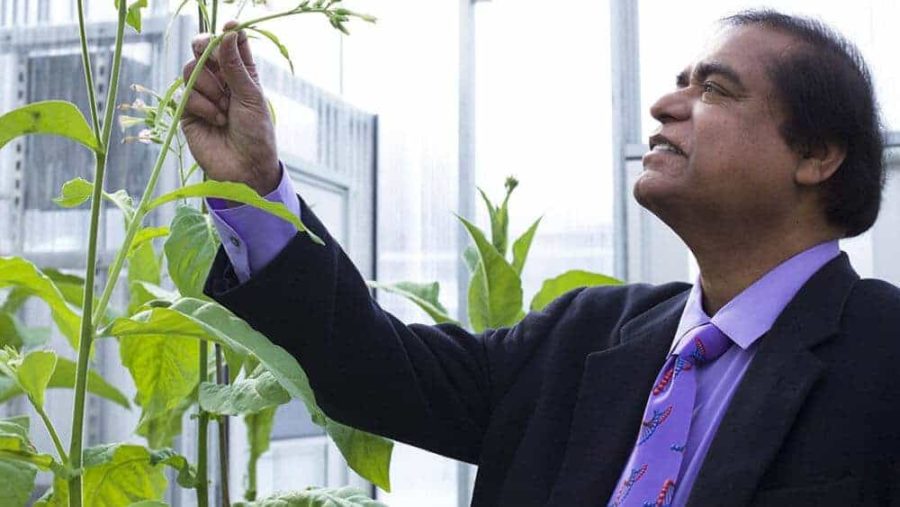The world is tantalizingly close to eradicating polio. Yet the disease still maintains a foothold, primarily in developing nations, with recent outbreaks in Asia, Africa, and the Americas, including in Haiti and the Dominican Republic.
Though there are two effective vaccines for polio, each has its limitations. Oral polio vaccine (OPV), which is the vaccine given most widely worldwide, is a live attenuated virus, and has in some cases recombined with other types of viruses to reactivate, causing acute flaccid paralysis. Therefore, the World Health Organization (WHO) has recommended complete withdrawal of OPV 2 by April 2016 globally. The alternative, inactivated polio vaccine (IPV), given in the United States and other industrialized nations, is safer, but is expensive and doesn’t prevent the virus from being shed and perhaps passed on to others—a particular problem in countries where sanitation is a major concern.
Now, with a new study led by Henry Daniell, a professor of biochemistry in the School of Dental Medicine, a third option is on the table. Daniell and coauthors from the U.S. Food and Drug Administration and the U.S. Centers for Disease Control and Prevention (CDC) have developed a booster vaccine that could complement IPV and ensure protection against recombining polio virus for millions around the globe.
With support from the Bill and Melinda Gates Foundation, the researchers used Daniell’s plant-based vaccine production platform—in which a plant incorporates a gene of interest into its DNA and then produces the associated protein in its leaves—to develop the booster. They decided to target viral protein 1, or VP1, which is present on all three serotypes of the polio virus. After confirming that they could stably produce the protein in plants, they fed the VP1-containing plant material to mice that had been primed with IPV.
“The vaccine induced high levels of mucosal and systemic immunity in the mice,” Daniell says. “And when the CDC performed tests on the mice’s sera, they found it could neutralize all three serotypes of polio virus.”
The WHO, recognizing the problems with OPV, is now recommending that everyone in the world receive a dose of IPV. But the need for boosters remains, particularly in the very young and very old, whose immune systems are not as efficient.
Daniell believes this virus-free vaccine, which could be produced relatively inexpensively and does not require refrigeration or special handling, could be an important component in reaching the goal of global polio eradication.
“We can ship capsules to every corner of the world and boost that IPV inoculation,” he says. “It’s time to improve upon the vaccinations we’ve been using for 75 years.”

